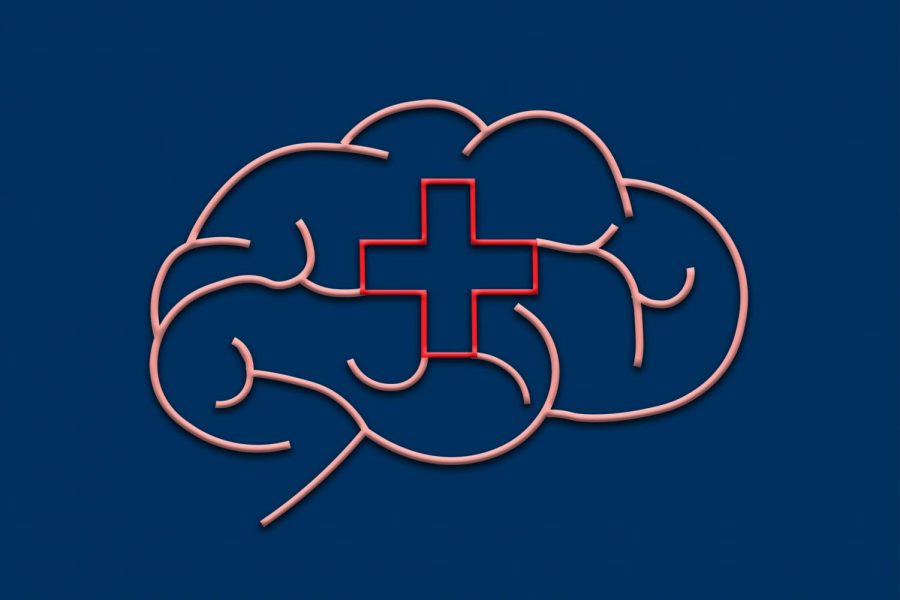Mental illness is one of the biggest issues affecting young adults, and City College works to be a supportive and accommodating place for students who may experience mental health difficulties.
According to the National Alliance on Mental Illness, one in 25 adults experience a serious mental illness each year, and suicide is the second leading cause of death among people aged 10-34.
“Mental health is one of the most important topics internationally right now,” said Jana Garnett, director of Disability Services and Programs for Students. “We have what I would call an epidemic of depression and anxiety.”
City College rises to meet the gravity of the issue by offering a number of services for students who struggle with mental illness.
DSPS offers accommodations for students with mental illnesses such as priority registration, extended time on tests, medical breaks from class and guidance with college regulations. The number of DSPS students using accommodations for mental health reasons has increased by 6% in the past four years, with 21% of DSPS students using mental health services in the 2018/2019 school year, according to Garnett.
Dean of Student Affairs Arturo Rodriguez has noticed the high rate of mental illness among students and believes it has a strong connection to students’ economic background.
“Life is very challenging. It’s very stressful. For people who grow up in poverty, it’s even more so,” he said.
Rodriguez points to the “Report a Concern” feature on the school’s website as one of the most effective mental health tools on campus. The feature allows students and faculty to report a student they believe may be in distress.
The Behavior Intervention Team then reaches out to the student by phone or email, and sometimes initiates police wellness checks at the student’s home if their safety is a concern.
“It’s probably saved some lives. I can say that with 100% certainty,” said Garnett of the feature.
Rodriguez believes the issue of mental health is so big that it spans across all departments.
“One of my goals is that every student will have a personal connection with someone on campus,” he said. That way, students can always be directed to the right resources to receive help, he said.
A big way the school has been putting mental health first is through the creation of The Well, a safe space on campus for mental health awareness and growth.
“SBCC makes mental health and physical health a priority,” said Becky Bean, program advisor for The Well. The Well focuses on giving students the tools to be their own mental health advocates, said Bean.
Another benefit available to all students is personal counseling offered through the student health center, with six free sessions per semester. Many students take advantage of the resource, said Health Services Senior Office Assistant Angela Ortiz and days become booked quickly.
While the school provides many resources to make attending classes easier, some students still have difficulty balancing mental health and coursework.
“I am noticing a trend of people taking time for themselves,” said engineering student Megan Lee. “People are prioritizing their mental health over grades.”
As a result of this trend, DSPS helps students try to continue classes in ways that are best for the student and their health. “We are spending significantly more time helping students navigate their options for taking a break,” said Garnett. “It’s a tough decision and at the end of the day, the students have to make it.”
Garnett recommends taking a lighter course load, trying to continue attending until the withdraw date and talking to an academic counselor when students feel overwhelmed by work.
Whether or not students taking time off for mental health reasons is a factor in enrollment decline is unclear. “I would say it’s a factor. To what degree it’s hard to measure,” said Rodriguez.
“We’re doing the best that we can but I think we need more resources,” said Rodriguez. Many mental health issues stem from factors beyond the college’s influence, and “we can’t address that so we end up having to deal with consequences that we can’t control,” he said.
Mental health is a big issue on campus, he said, and the school is working hard with what it has to help students.










![Milton Alejandro Lopez Plascencia holds a flag showcasing the United States and Mexico on Feb. 7 in Santa Barbara, Calif. “It’s heartbreaking to see what is happening all across the country,” Lopez Plascencia said. “I [want] my voice to be heard by the community.”](https://www.thechannels.org/wp-content/uploads/2025/05/MGSImmigration-1-1200x800.jpg)




